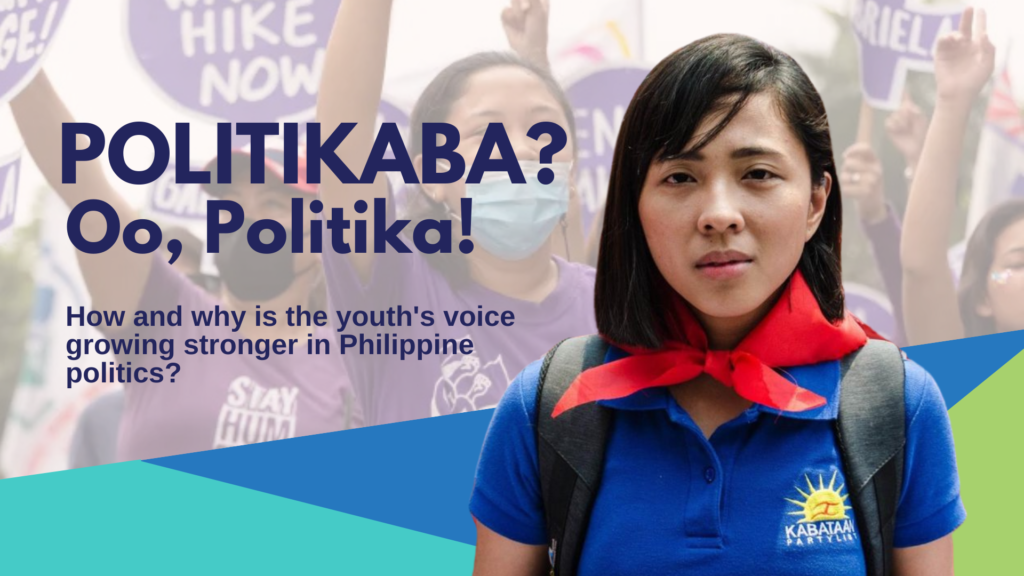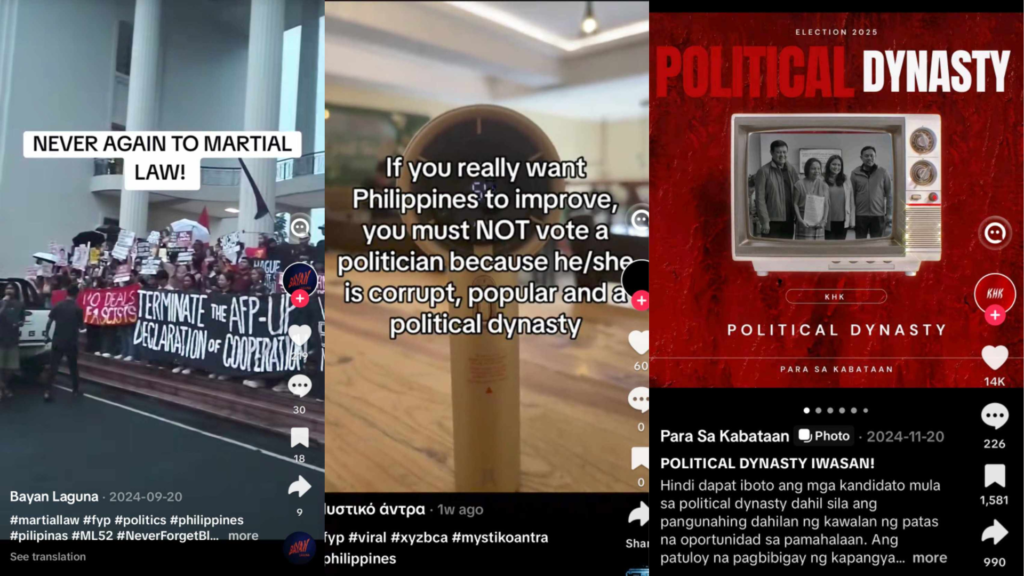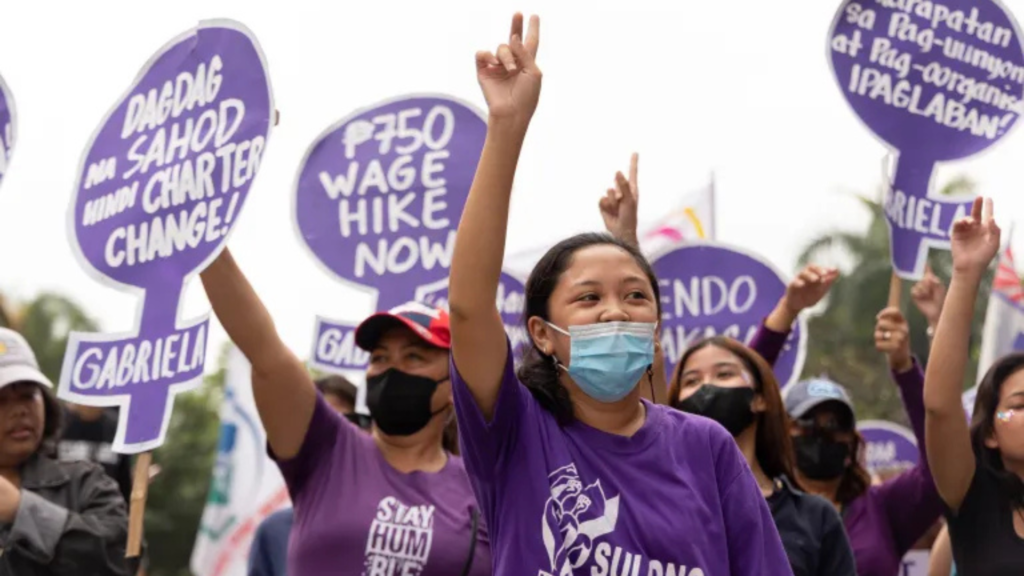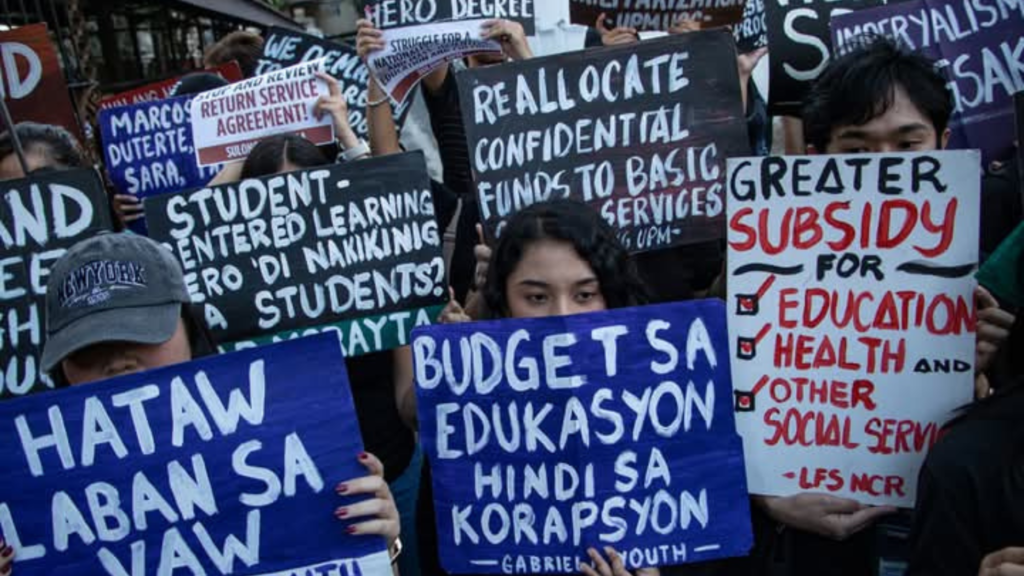Be the One to Stand Up or be the One to be Silenced Up
Written by Princess Jane Gemotra, March 25, 2025
Are you too young and dumb to talk about politics, or do they just not want an opinion different from theirs?

Election is near, politics are everywhere. Left and right campaigns, projects and subsidies everywhere, everyone’s political opinion is being discussed. That’s the current happenings in the Philippine society—but why is it that when the youth speak up about it, oftentimes they get disregarded, or even worse, disrespected?
Today’s generation often faces various opinions and criticisms on how they express their political perspectives. Due to the differing opinions of everybody, it’s common to see discussions or discourse between individuals. Unfortunately, most of the time, the discourse turns into a heated argument and loses its focus.
This May 2025 is the Philippines’ Midterm Election, and campaigns are everywhere. From the jingles you hear every morning, projects in your area, to campaign flyers and tarpaulins you see, it is easy to be aware of who’s running and their background. As the election comes, everyone is encouraging each other to vote for their chosen political party, whether it is someone new or someone who has been serving for many years. Everyone has a reason for choosing their candidate.

Courtesy: TikTok
Today’s youth is expressive about their political opinion, advocacies like “No to political dynasty”, “#neveragain”, or “Don’t vote for corrupt politicians”, these are just some examples of their beliefs, and they receive backlash because of these “controversial” opinions.
It is not new to hear words like “Masyado ka pang bata” or “Ano bang alam mo tungkol diyan?” when a youth talks about politics to an older person. Different from what older generations were accustomed to, today’s generations are unafraid to advocate for what is best for their country and fellow citizens. Individual like Gabe Pineda is just an example of youth who are politically empowered. With the use of social media, he is able to reach a broader audience to educate the masses about politics and be open about other political opinions.
In this video, Gabe talked about how each vote affects the whole system in the Philippines and how voting wisely can make a significant change to make the country better. This shows that youth are aware of the system currently built and they have to make a move for the betterment of the nation.
Gabe also shared his list of candidates and discussed in separate videos why he is voting for said candidates. People on his platform claimed that a candidate has an issue with their advocacy while encouraging other candidates who are worthy. A safe and healthy conversation went between the youths about each other’s perspectives.
He addressed the issue regarding the candidate people are talking to; he was open to new information given to him; he is willing to learn and hear the different voices of others. This shows how the youth are open-minded about the information they receive while also being healthily skeptical about whether it is real or not.
Gabe is not the only example of politically aware individuals right now. Youth don’t need to have a massive amount of followers to be outspoken about their stand. A simple post on their personal account can garner the attention of their friends or mutuals.
A study about the focus of people on candidates’ personalities rather than platforms (Wong, 2022) shows how the older generations prefer to vote for a candidate with a good personality because of the values of the country, which is what newer generations greatly oppose. In a personality-driven election promoted by non-ideological parties, Filipino voters go to the polls to choose who will govern them, but not necessarily how they will be governed, Wong (2022) stated. The country’s election is more of a popularity contest rather than an election for public service, and because of this system, which the youth believe needs to change, is the reason why they are campaigning based on their platforms and achievements rather than the popular candidate.
Social media has greatly broadened citizens’ political repertoires by offering novel avenues for political engagement, such as utilizing protest hashtags or participating in online communities focused on political matters (Waeterloos et al., 2021). With the rise of digital media and the access of many to it, it gives a huge opportunity and platform to express anything and be one of the people who are empowered. It also creates a community that supports each other, one click away on mobile phones.

Courtesy: AlterMidya
Although young people are becoming less interested in traditional politics, they are increasingly participating in new kinds of political participation, such as internet activism, protests, and social movements (Kireeva et al., 2017). The rejection of the traditional belief is what fuels youth to change the system and build a better government for the country.

Courtesy: Manila Today
A huge population of the youth today grew up educated about the country’s history, which empowered their belief about who they are today. According to National Data (2022), more than 42% of Filipinos are under 18 years old and poised to become influential participants in the Philippines’ democracy. According to Idea International, Democracy Talks in Manila–The Role of Youth Voices in Philippine Democracy (2020), “Youth in the Philippines have historically been active in informal forms of political participation, such as student and street activism, volunteerism, and social media campaigns”. This explains the activity of the youth in such participations because of the accessibility of campaigns. They are willing to highlight the areas for the improvement of the government, for the current and future generations.
Youth seek to be heard, and speaking up in different ways helps them to be understood better, but will the voice of youth ever be enough to bring change?
How about you? Do you think the youth are too young and dumb to talk about politics? Are their voices not worth being heard? Or are people simply refusing to listen?
What do YOUTH think? What do YOU think?
References:
Authentication challenge pages. (n.d.). https://psa.gov.ph/statistics/quickstat/naationl-quickstat/all/
Democracy Talks in Manila – The role of Youth Voices in Philippine Democracy | International IDEA. (n.d.). International IDEA. https://www.idea.int/events/democracy-talks-manila-role-youth-voices-philippine-democracy
Obenza, B., & Rabaca, B. H. (2024). The Nexus between Political Awareness and Social Media Political Participation as Mediated by the Political Efficacy Among Youth in Region XI Philippines. SSRN Electronic Journal. https://doi.org/10.2139/ssrn.4934446
Philippine elections and the politics behind it. (n.d.). Lowy Institute. https://www.lowyinstitute.org/the-interpreter/philippine-elections-politics-behind-it